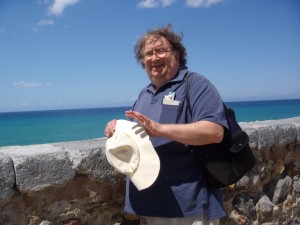Joel Denker, who graduated from Yale, has had a rich and varied background in innovative teaching and writing. Founder of a civil rights movement free school in St. Augustine, Florida, while a student, he also taught for a year in East Africa after graduation. There, in Dar es Salaam, Tanzania, he led classes in History at a secondary school for refugees from Southern Africa, Tanzania. On his return to the U.S., he taught American History at Montgomery Blair High School in Silver Spring, Maryland. He earned his Masters of Arts in Teaching in 1969 from the Antioch-Putney Graduate School of Education, which had placed him at Blair.
From 1968-70, Joel directed one of the country’s early free high schools in Washington, D.C. After two years with that project, he moved to the New York City area to teach writing at the Staten Island Community College in the first year of the city university’s open admissions program. During his year in Staten Island, he completed a book (co-authored with Steve Bhaerman), No Particular Place To Go, which chronicled his free school experience. It was published by Simon and Schuster.
Joel’s next teaching venture was an organizer and teacher in a new Labor Studies program within the State University of New York (SUNY) Old Westbury department of American Studies. He soon returned to academic study in the doctoral program in Education at Harvard. His work there focused on the social and historical foundations of education. Joel received his doctorate in 1978.
He moved back to Washington to teach at the University of the District of Columbia, the city’s public university. At UDC, he played the lead role in developing the University’s first graduate degree, a Masters in Labor Studies. The degree was one of a handful of such programs in the U.S. For twenty years, he taught courses in Labor History, Labor Law, Labor and Politics, and a variety of other courses. Drawing on his experiences, Joel authored Unions and Universities, a study of the development of workers education in the U.S. The book was published by Allanheld and Osmun in 1981.
While working at UDC, he began pursuing another passionate interest: the history and culture of ethnic food. His monthly columns, “The Ethnic Bazaar,” began appearing in the Washington newspaper, The InTowner. He also expanded his international teaching during a sabbatical in England. He taught Labor History at the University of Essex and researched ethnic communities in Britain.
After two decades, he retired to do a combination of teaching, research, and writing. He taught American History at the George Washington University and changed the direction of his column at The InTowner to emphasize the hidden histories of familiar and unusual foods. Two books had their roots in Joel’s engagement with food and ethnicity. Capital Flavors, published by Seven Locks Press in 1989, portrayed a wide range of ethnic eateries in the Washington area. The World on a Plate, brought out by the Westview Press in 2003, was a history of how ethnics changed American food.
Joel traveled to the Oxford Symposium on Food and Cookery in 2008 to present his essay on the “Carrot Purple” at the annual meeting. Jane Kramer recognized his Oxford contribution in the New Yorker food issue of November 22, 2010. This experience led to his latest book, The Carrot Purple and Other Curious Stories of the Food We Eat, published by Rowman & Littlefield.
To contact Joel Denker: foodpassages@gmail.com








